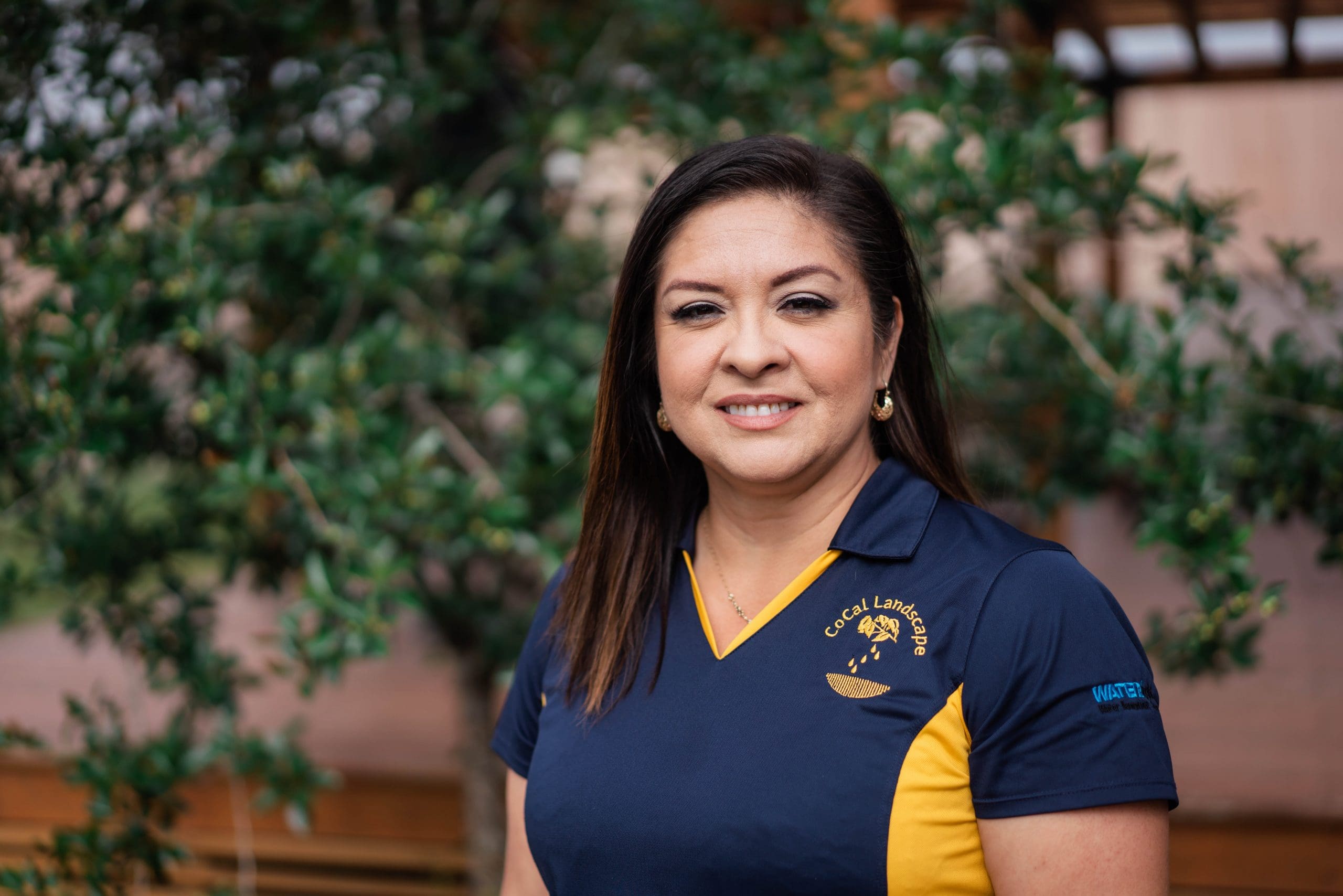
Mari Medrano was 16 years old when she first started working in the office at CoCal Landscape Services, Inc., based in Denver, Colorado. She worked as an office assistant there and then left the industry for a time. She returned in 1998 while she was in college and started working in the field.
“It was another lady and me, and we were weed eating and native mowing,” Medrano says. “We had our own little crew.”
Medrano also helped out in the office and taught crew members English after hours.
“As soon as I graduated, I was offered the position of HR coordinator and I had no HR experience,” Medrano says. “That in and of it of itself I had to take on and learn because my degree was not in HR.”
Medrano’s career ambition was immigration law, so she majored in Chicano Studies at the Metropolitan State University of Denver. Yet she was a young, recently single mom with three kids, so her father, Chuy Medrano encouraged her to start working instead of spending another four years in school.
“I stepped into the challenge of learning how to do HR, not only HR, but I got into safety and started doing a lot of stuff with safety,” Medrano says. “The one thing that I think my dad allowed me to do was continue with the H-2B program. I had learned enough I was able to take on the whole program on my own.”
Now Medrano is the human resources director for CoCal and is solely responsible for all the human resources for the 250+ employees at the company. Her expertise with the H-2B program allows her to successfully bring over 160 temporary foreign workers from Mexico every year.
Over the years she’s spent working, Medrano says she’s seen the industry open up more to women and other communities. One challenge she’s faced during her career is going up against men and being recognized for her own potential. She says one of her mentors encouraged her to be more assertive. She admits she often used to self-sabotage, thinking she wasn’t qualified enough.
“I’ve taken a lot of leadership courses, a lot of training, to show that that’s not true,” Medrano says. “I do know what I’m talking about and I love what I’m doing.”
Medrano is a 2017 fellow for the Latino Leadership Institute and a 2020 fellow in the Stanford Latino Entrepreneurship Initiative and Latino Business Action Network. She tells others who are growing in their careers to never stop learning and educating themselves.
“We can always learn more,” she says. “Definitely take certifications, take leadership training, that’s going to go so far. Apart from gaining contacts and networking amongst other people in other industries, it just it opens your mind.”
She is active in a number of organizations, including the CSU Landscape Design and Contracting Advisory Committee and is on the board of directors for the Associated Landscape Contractors of Colorado. Medrano is also on the Latino Landscape Network (LLN) Committee. Before serving on the LLN committee, she was part of the National Hispanic Landscape Alliance (NHLA).
“It was so important for me to be able to voice frustrations and struggles that probably a lot of the Latino community in the landscape were facing,” Medrano says.
Since NHLA became part of NALP in 2020, Medrano says LLN has been a great avenue providing a voice and the tools for Latinos to come up in the ranks. She says by joining NALP, they have been able to focus on their mission.
“The biggest thing is the network,” Medrano says. “It’s finding your family outside of your family. I think a lot of us in LLN are really close and we’ve established a network amongst ourselves where we can talk about anything or help us in a situation that we’re currently facing.”
She says with LLN, if you are struggling, you can see what a counterpart in another state is doing with no fear of competition preventing collaboration.
“What I love about LLN is that we’re so spread apart that our struggles are the same, and maybe they’re not, but the solutions can come from everywhere,” Medrano says. “I think that’s what makes LLN really strong.”
Medrano says other landscape professionals can support Latino landscapers by giving them the opportunity to advance and recognizing what tools they need to succeed.
“If other landscape owners groom their employees to take those middle management positions, that’s a step in the right direction,” Medrano says.
She says often, Latino employees can be reluctant to pursue a promotion because they don’t know how to go from a crew member to a foreman where they’ll no longer be seen as a friend by the rest of the team.
“You don’t always have to be friends,” Medrano says. “It’s about your growth. It’s about your personal growth. It’s about your family’s growth. It’s about the company’s growth.”
She says Latinos can also be concerned about taking a step up out of fear if they fail in that role, they’re going to be fired.
“Sometimes we have to take that risk and I think that’s one of the things that we need to work on,” Medrano says. “The guys are the experts. They know what they’re doing so how can we get you to this next level because you know what you’re doing.”

